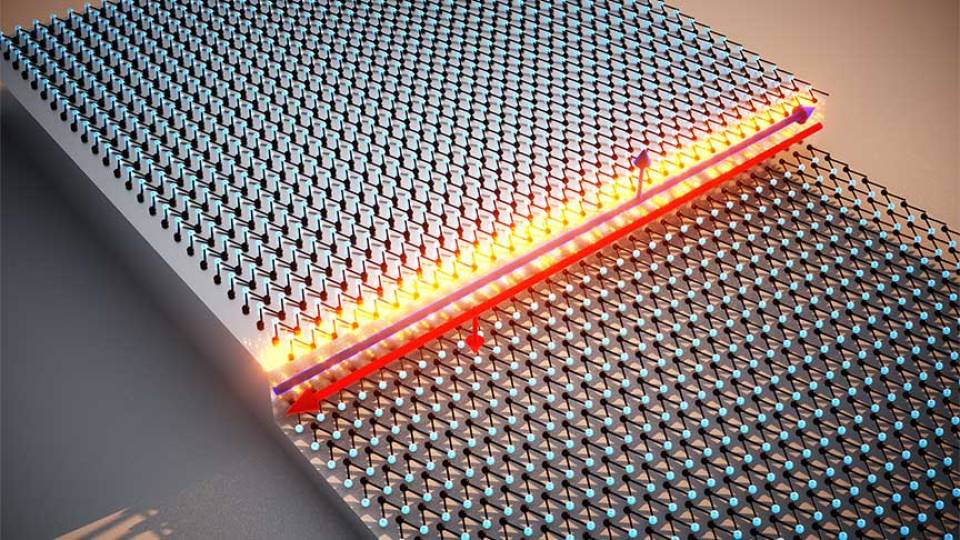Three faculty members, M. Zahid Hasan, N. Phuan Ong and Ali Yazdani, in the Princeton University(Link is external) Department of Physics(Link is external) have each been awarded five-year grants by the Gordon and Betty Moore Foundation(Link is external) as part of the Emergent Phenomena in Quantum Systems (EPiQS) Initiative. EPiQS is an integrated research program in quantum materials that crosses the boundaries among physics, chemistry and materials science. The initiative supports exploratory research with the aim of accelerating progress in the field and propelling it into a state in which new, deeper questions can be asked about organizing principles of complex quantum matter.
The Princeton recipients are among just 20 scientists selected nationwide. Each investigator will receive $1.6 million over five years to pursue innovative research that has the potential for significant advances in quantum materials. Princeton is one of eight universities across the country designated as a Moore Foundation EPiQS Theory Center(Link is external), which provides flexible postdoctoral appointments that enable early-career researchers to acquire a breadth of expertise in quantum materials theory.

M. Zahid Hasan
M. Zahid Hasan(Link is external), the Eugene Higgins Professor of Physics, focuses on the search, prediction, design, discovery and development of new physics of quantum matter. Hasan’s research group designs, controls and engineers properties of quantum matter, performs theoretical predictions and develops spectroscopic, microscopic and transport methods and related tools that provide new insights into the emergent behavior of topological matter. The group is interested in quantum-many-body emergence, novel Bose condensates, topological superconductivity, Weyl magnets, doped Mott insulators, quantum spin-liquids, quantum coherence and strongly interacting topological phases of matter. View Hasan’s investigator profile(Link is external).

Nai Phuan Ong
Nai Phuan Ong(Link is external), the Eugene Higgins Professor of Physics, carries out experiments exploring the electronic properties of topological materials, focusing in three directions. In one, the Ong group explores edge supercurrents in topological superconductors to learn about their nature with an eye toward applications in new quantum devices. In another, the group explores the transport properties of Weyl semi-metals that are magnetic. Finally, the researchers conduct low-temperature measurements of the thermal Hall conductivity in quantum spin-liquid materials to look for novel excitations such as spinons. Ong’s research is in close collaboration with Robert Cava, the Russell Wellman Moore Professor of Chemistry and Leslie Schoop, assistant professor of chemistry, who are both Moore Materials Synthesis Investigators(Link is external), and others. View Ong’s investigator profile(Link is external).

Ali Yazdani
Ali Yazdani(Link is external), the Class of 1909 Professor of Physics, conducts research focused on the development and application of experimental methods to directly visualize exotic electronic phenomena in solids. Through these studies, he and his team have unraveled the properties of a variety of novel quantum phases of matter. His Moore-funded research project focuses on the study and discovery of new correlated and topological quantum phases. He and his team will take advantage of recent breakthroughs in making single-atom two-dimensional materials and stacking them to engineer such phases. View Yazdani’s investigator profile(Link is external).
The Gordon and Betty Moore Foundation fosters path-breaking scientific discovery, environmental conservation, patient care improvements and preservation of the special character of the Bay Area. Visit Moore.org(Link is external) or follow @MooreFound.



